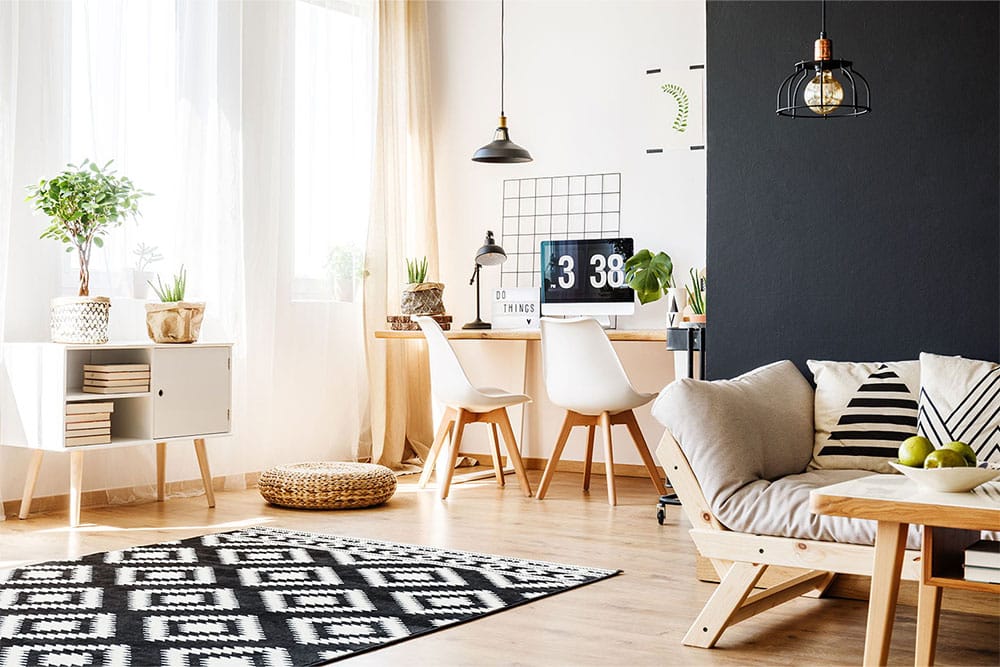Improving a small space can significantly enhance its functionality and aesthetics. Here are some practical tips for optimizing small spaces:
Maximize Storage
- Vertical Storage:
- Use tall bookcases, shelving units, or wall-mounted shelves to take advantage of vertical space.
- Install hooks or pegboards on walls for hanging items like kitchen utensils, tools, or accessories.
- Multifunctional Furniture:
- Opt for furniture with built-in storage, like ottomans, beds with drawers, or coffee tables with compartments.
- Choose foldable or extendable furniture, such as drop-leaf tables or Murphy beds, to save space.
- Hidden Storage:
- Use under-bed storage bins or vacuum-sealed bags for off-season clothing.
- Consider hollow furniture, like benches or stools, that can store items inside.
Create Illusions of Space
- Mirrors:
- Place large mirrors strategically to reflect light and create an impression of a bigger room.
- Mirrored furniture can also add depth.
- Light Colors:
- Use light, neutral colors for walls, ceilings, and furniture to make the space feel airy and open.
- Incorporate pops of color through accents like pillows, rugs, or art.
- Lighting:
- Use layered lighting (overhead, task, and ambient) to brighten the space.
- Install sconces or string lights to save surface space.
Organizational Tips
- Declutter:
- Regularly evaluate what you truly need and remove unused items.
- Keep surfaces clear and store items away when not in use.
- Zoning:
- Define different areas within the same room, such as a work nook or reading corner, using rugs, lighting, or furniture placement.
- Use screens or curtains to separate spaces if needed.
Furniture and Decor
- Scale Appropriately:
- Choose furniture that fits the proportions of the room. Avoid oversized pieces that dominate the space.
- Opt for low-profile furniture to make ceilings appear higher.
- Transparent and Reflective Materials:
- Use furniture made of glass or acrylic to create an open feel.
- Metallic accents can add a reflective element.
- Minimalist Approach:
- Focus on a few key pieces rather than crowding the space with too many items.
- Use built-ins, like recessed shelves or desks, to reduce the need for standalone furniture.
Smart Solutions for Specific Rooms
- Kitchen:
- Add magnetic strips for knives or spices.
- Use pull-out drawers or stackable containers for efficient cabinet storage.
- Bathroom:
- Install floating shelves or baskets for toiletries.
- Use back-of-door or over-the-toilet racks.
- Bedroom:
- Opt for a headboard with storage or mount shelves above the bed.
- Hang organizers on closet doors for shoes or accessories.
Incorporate Technology
- Use smart home devices like compact robot vacuums to save time and effort.
- Install space-saving gadgets, like a wall-mounted tablet or foldable TV mount, for entertainment or work.
With thoughtful planning and strategic improvements, even the smallest spaces can feel spacious, organized, and inviting!




